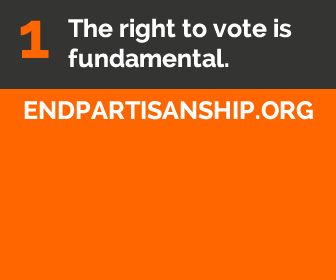Before we get into this topic, imagine you are asked to listen to a simple, short story and then asked to answer 4 questions on it. Consider, first, the story:
A little girl named Mary goes to the beach with her mother and brother. They drive there in a red car. At the beach they swim, eat some ice cream, play in the sand have sandwiches for lunch.
Now the questions (try to answer them without looking back at the story. Honor system. No cheating.):
1. What color was the car?
2. Did they have fish and chips for lunch?
 op-ed in the New York Times declaring that in order to “save America” it was necessary to “end partisan primaries.”
op-ed in the New York Times declaring that in order to “save America” it was necessary to “end partisan primaries.”